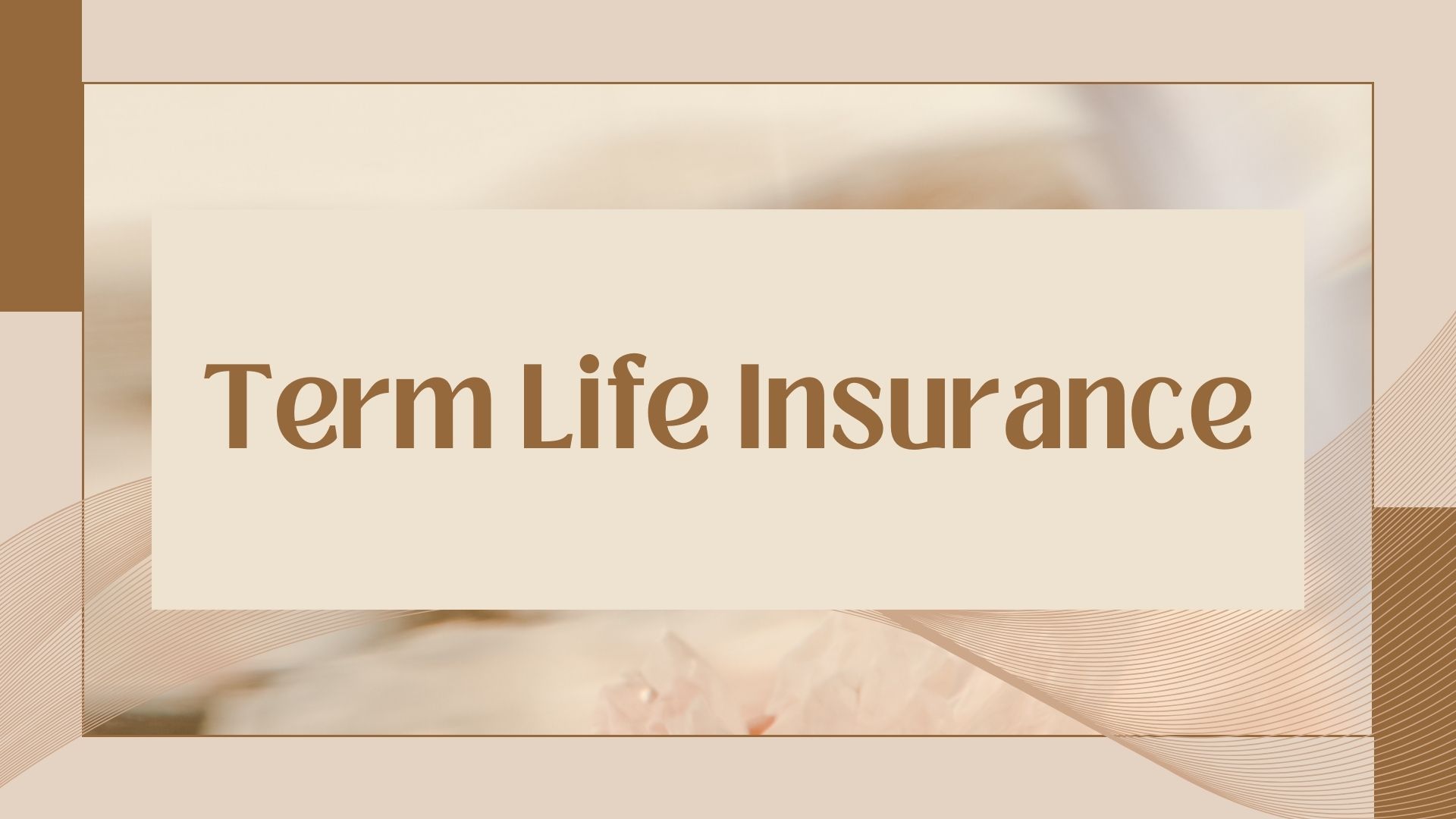Introduction
Term life insurance is a financial product designed to provide protection and financial security to individuals and their families in the event of the policyholder’s death. Unlike other types of life insurance, term life insurance offers coverage for a specified period, known as the “term,” which can range from 5 to 30 years or more. This insurance option is often chosen by those who want to ensure that their loved ones are financially supported in the event of their untimely demise without committing to a lifelong policy. In this article, we will explore the key aspects of term life insurance, its benefits, how it works, and when it might be the right choice for you.
Understanding Term Life Insurance
Term life insurance is a straightforward form of life insurance. When you purchase a term life insurance policy, you pay regular premiums to the insurance company for the duration of the policy’s term. In return, the insurance company promises to pay a death benefit to your beneficiaries if you pass away during the term of the policy. This death benefit is typically a tax-free lump sum of money and can be used by your beneficiaries to cover various expenses, such as funeral costs, mortgage payments, outstanding debts, or everyday living expenses.
Key Features of Term Life Insurance
Fixed Term: As the name suggests, term life insurance is temporary and covers you for a specific period. If you outlive the term of the policy, the coverage expires, and there is no payout.
Affordable Premiums: Term life insurance is generally more affordable than permanent life insurance policies, such as whole life or universal life insurance, because it provides coverage for a limited time.
Simple Structure: Term life insurance is one of the simplest insurance products to understand. You pay premiums, and if you die during the policy term, your beneficiaries receive the death benefit.
Flexible Coverage Amounts: Policyholders can choose the coverage amount, known as the face amount, based on their financial needs and goals. This allows individuals to tailor their coverage to their specific circumstances.
Convertibility Options: Some term life insurance policies offer the option to convert to a permanent life insurance policy without undergoing a medical examination. This can be valuable if your circumstances change and you need lifelong coverage.
Benefits of Term Life Insurance
Financial Protection: The primary purpose of term life insurance is to provide financial protection to your loved ones in the event of your death. It guarantees that they can uphold their accustomed quality of life and fulfill their financial commitments.
Affordability: Term life insurance is often the most budget-friendly option for securing significant coverage. This makes it accessible to many individuals and families.
Customizable: Term policies can be customized to fit your specific needs. You have the flexibility to select the duration of coverage and the amount that corresponds to your financial objectives.
Temporary Needs: Term life insurance is ideal for covering temporary financial obligations like a mortgage, education expenses, or income replacement during your working years.
When to Consider Term Life Insurance
Family Protection: If you have dependents, such as a spouse, children, or aging parents, term life insurance can provide financial protection to ensure their well-being if you were to pass away prematurely.
Debt Coverage: If you have significant debts, like a mortgage, car loans, or student loans, term life insurance can help cover these obligations so your loved ones aren’t burdened with them.
Business Owners: Business owners often use term life insurance to provide financial security for their business partners or to cover outstanding business loans.
Budget Constraints: If you have limited financial resources and cannot afford the premiums associated with permanent life insurance, term life insurance offers an affordable alternative.
Conclusion
Term life insurance is a valuable tool for individuals seeking cost-effective and temporary financial protection for their loved ones. It provides peace of mind, knowing that in the event of your untimely death, your beneficiaries will receive a tax-free payout that can help them maintain their financial stability. When considering term life insurance, it’s essential to assess your specific financial needs, including family obligations, outstanding debts, and long-term goals, to determine the appropriate coverage amount and term length. Ultimately, term life insurance is a flexible and accessible option for those looking to safeguard their family’s financial future.
